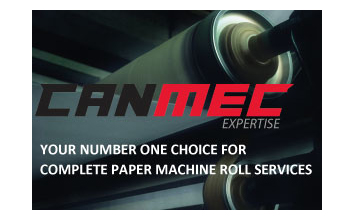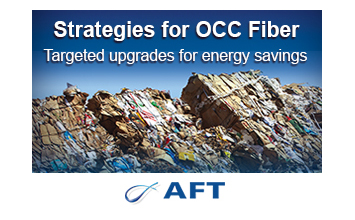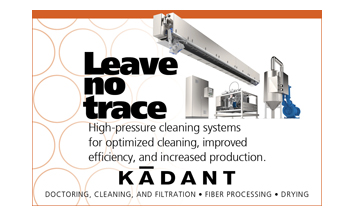When it comes to reducing greenhouse gas (GHG) emissions, much of our work has focused on evaluating and improving our manufacturing processes and investing in innovative, clean energy solutions.
In our woodlands operations, emission reductions come primarily from sustainably managing forests and transporting logs.
Resolute is currently exploring the use of hybrid planetary logging trucks and harvesters in our woodlands operations, and off-highway automated vehicles – known as truck platooning – for transporting logs to our sawmills. Finding reliable means of adding electrification to these types of equipment and vehicles is no small challenge. Off-highway logging trucks can carry loads of up to 400,000 pounds (181,437 kg), and modern forest harvesters handle a range of tree-processing functions.
Hybrid planetary trucks
A planetary logging truck is a heavy-duty vehicle tailored for transporting timber on rough terrain like logging roads. We are currently in the second phase of testing a hybrid planetary truck in our Saguenay–Lac-Saint-Jean woodlands using an innovative electrification module that can be installed on new or used diesel trucks. The module enables trucks to shift between diesel and electric modes. We are evaluating the hybrid component’s durability, especially in cold temperatures and are poised to conduct a similar assessment in our Ontario woodlands operations.
If the hybrid module is successfully implemented, fuel and emission reductions would be significant. In Quebec alone, adapting our current fleet of 55 logging trucks could result in a savings of close to 300,000 gallons (1.2 million liters) of diesel fuel – a reduction of about 3,500 metric tons of CO2 equivalents per year.
Hybrid multifunctional harvesters
A harvester in forestry is a machine that cuts down and processes trees. A multifunctional harvester, on the other hand, combines complex functions such as cutting, delimbing and bucking into a single machine, reducing the need for additional equipment and minimizing the number of passes through the forest. Resolute has long incorporated multifunctional harvesters into its forest management practices, which saves on fuel compared to regular harvesters.
We are currently taking further steps to decrease fuel consumption in our woodlands operations by exploring the use of hybrid diesel-electric multifunctional harvesters. Developed by FPInnovations, a private not-for-profit R&D organization that specializes in developing solutions for the Canadian forest products sector, in collaboration with the Canadian government and the Quebec Forest Industry Council (QFIC), this type of hybrid harvester could save our Quebec woodlands operations as much as 800,000 gallons (3 million liters) of diesel annually, which represents 9,000 metric tons of CO2 equivalents.
Truck platooning
Resolute continues to support testing of truck platooning in our Quebec woodlands operations. The multi-year project, aimed at accelerating the adoption of off-highway automated vehicle technology, involves a convoy of electronically linked trucks led by an experienced driver, with the rest of the trucks responding autonomously.
Truck platooning is being studied for its lower fuel consumption. Since the trucks follow each other closely at a constant speed, there is less braking and accelerating. This could reduce CO2 emissions and help address the ongoing shortage of truck drivers and operators in the forest products industry.
Exploring new technologies is part of our commitment to reducing GHG emissions and driving efficiency, which supports the global transition to a greener economy.
Source: The Resolute Blog













